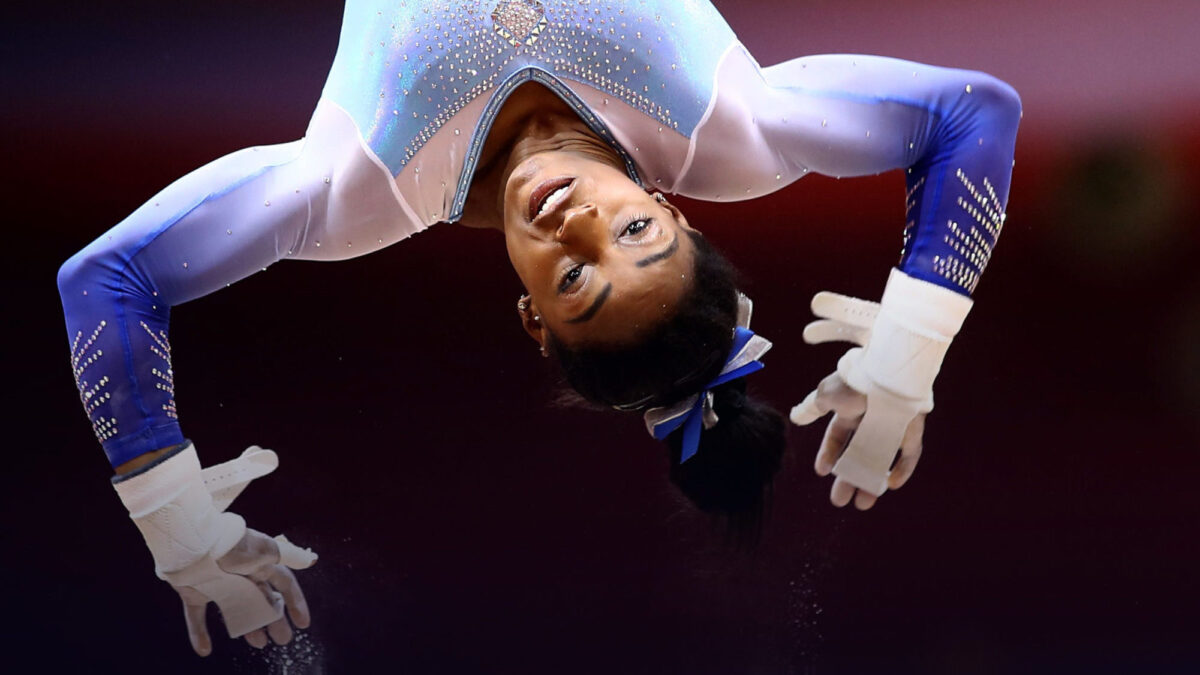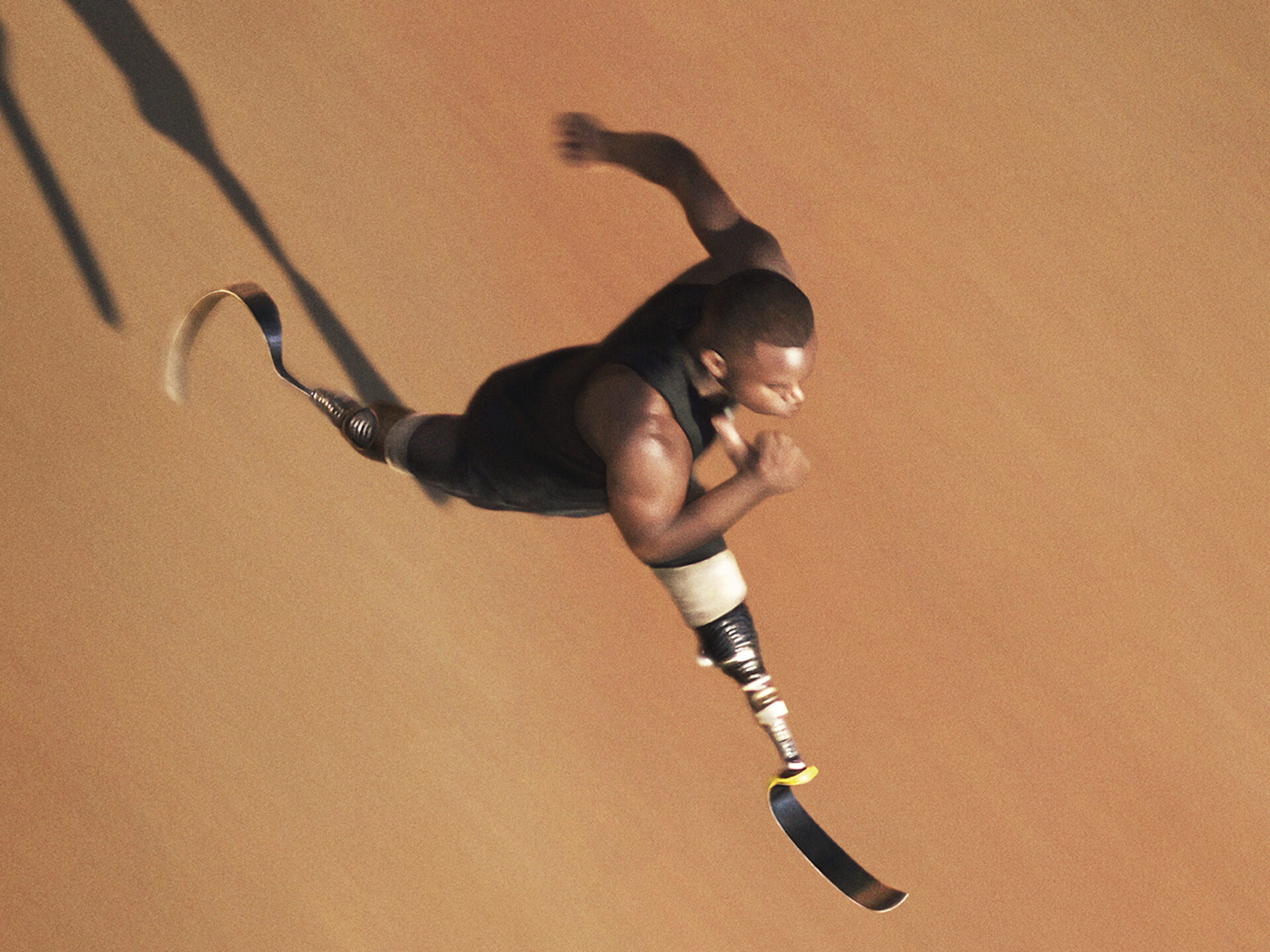Magazine

May 12, 2021

This article was originally published in Populous Magazine, our biannual publication featuring news and trends from the worlds of sport, entertainment, and major public events. Find out more, and sign up to receive a free copy, here.
Watching Rising Phoenix, a new documentary about the Paralympic Games, one quickly realises how elite-level Paralympic sport is born of an aching hunger to succeed. Not only are the athletic achievements of the sportsmen and women featured in the film extraordinary, but so are many of their back stories.
There is the swimmer Ellie Cole, who lost a leg through cancer; the archer Matt Stutzman, born with no arms but who shoots arrows using his legs; the wheelchair racer Tatyana McFadden, born disabled, abandoned in a Russian orphanage as a baby and later adopted by an American mother; the sprinter Jonnie Peacock and fencer Bebe Vio, both of whom lost limbs to meningitis. And the long-jumper Jean-Baptiste Alaize who, aged three, lost his right leg after a machete attack during the civil war in the African nation of Burundi, and was forced to watch as his mother was murdered in front of him.
“We have all lived through something that didn’t allow us to succeed,” says the latter. “And that’s where our strength lies. Life is a fight.”
Director of Rising Phoenix is Ian Bonhôte. His film recounts the history of the Paralympic Games, analysing how it has led to a global understanding of disability. There are interviews with leading Paralympians, celebrating their athleticism and diversity.
Bonhôte explains how it was his intention, all along, to pursue the theme of para-athlete as superhero. “We wanted to create an aesthetic that smacked you in the face, visually,” he told Populous magazine. “We wanted people to be blown away; to be wowed by the visuals. We want documentaries to be like blockbusters. That’s where the idea of the superhero came from.”
Not that everyone was happy with this metaphor. Bonhôte says older, retired Paralympians were particularly uncomfortable with it. “They just wanted to be seen as normal.”
Inevitably, the challenges at the heart of these stories tugs at viewers’ heartstrings. “You don’t make good films without emotions,” says Bonhôte, who has also directed a documentary on the fashion designer Alexander McQueen, as well as advertising campaigns and music videos. Yet he insists he never wanted people to feel sympathy for the stars of his film. “No, it was empathy and awe I wanted them to feel.”
Originally from Switzerland, and now based in London, Bonhôte had very little knowledge or experience of disabled sport before he embarked on his film. The project opened his eyes in many ways, he says. Most importantly, he realised the political impact of the Paralympic movement. “The Paralympics isn’t like the Olympics,” he says. “It is truly a social movement; almost a human rights movement. Through putting on a show and giving a platform to the athletes, the Paralympics help change minds both on and off the field of play.”
Through his film, Bonhôte explored the crucial role Sir Ludwig Guttmann played in establishing the Paralympics. This Jewish-German neurologist escaped the Nazi regime just before the Second World War, and arrived in Britain with his family where he established a spinal injuries centre at Stoke Mandeville Hospital in Buckinghamshire in 1944. It was here, on the opening day of the 1948 London Olympics, that Guttmann organised the first Stoke Mandeville Games, for disabled war veterans – the precursor to the Paralympic Games. Just 16 servicemen and women took part in that forerunner, and only in wheelchair archery. Compare that to the more than 4,300 athletes at the most recent Paralympics in Rio in 2016.
“The Paralympic movement might have happened without Ludwig, but I don’t think it would have taken off in the same way,” says Bonhôte. “He created the movement because he wanted people to return to a normal life. He saw the UK was a country in love with sport. He didn’t like sport himself but he knew he had to introduce it, and he saw the benefits. In his hospital, he saw how people used to race their wheelchairs down the corridors.”
Bonhôte admires the way the Paralympics has always battled for its funding and for its survival. “For every inch of its existence,” he says. “From being a village fete in a hospital in 1948, it has become [one of the] most watched sports events in the world.”
He sees a bright future, although he warns that much-needed sponsorship might come at a cost. “I believe the new leadership is really trying to make the Paralympics as sponsor-friendly as possible. Many sporting events, like the Paralympics, have this edginess, this freedom. And then, as soon as sponsorship money comes, they have to be very careful; potentially less punk in their attitude.”
Whatever the future holds – be that punk, mainstream or otherwise – there’s no doubt this year’s Paralympic Games will be the scene of more great stories and achievements. Many of the stars of Bonhôte’s film will be in Tokyo to provide them.
Paralympians have competed at venues designed and organised by Populous, all the way back to the 1996 Atlanta Paralympics.
Lorem ipsum dolor sit amet consectetur, adipisicing elit. Non facere corporis et expedita sit nam amet aut necessitatibus at dolore enim quis impedit eius libero, harum tempore laboriosam dolor cumque.
Lorem, ipsum dolor sit amet consectetur adipisicing elit. Illo temporibus vero veritatis eveniet, placeat dolorem sunt at provident tenetur omnis, dicta exercitationem. Expedita quod aspernatur molestias eum? Totam, incidunt quos.